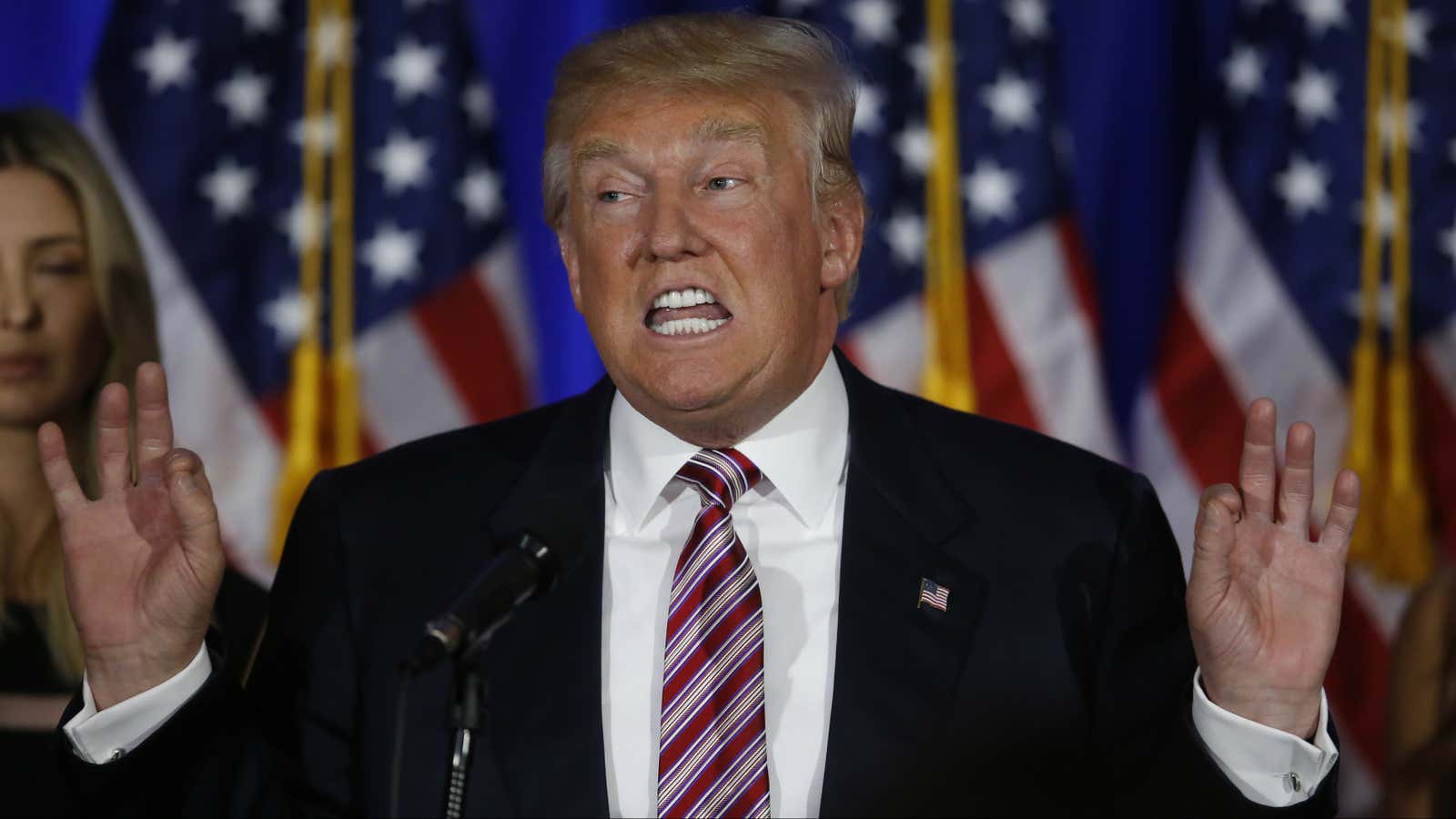To hear him tell it, Donald Trump’s seizure of the Republican nomination was borne of record-high primaries turnout. Here’s what he said earlier this week after the official end of the 2016 GOP primary (transcript via Vox):
Our campaign received more primary votes than any GOP campaign in history. No matter who it is, no matter who they are, we received more votes. This is a great feeling…. I beat a rigged system by winning with overwhelming support. The only way you could have done it. Landslides all over the country, with every demographic on track to win 37 primary caucus victories in a field that began with 17 very talented people.
Trump is right about one thing: He secured more than 13 million votes in the GOP primary, more than any Republican candidate this century, or in history.
But whether 13.4 million raw votes actually equal ”overwhelming support” is another thing.
Trump is fond of boasting about how the “movement” he’s inspired has boosted turnout in every corner of America. And turnout was up dramatically: 11 million more Republican primaries ballots were cast this year than in 2012, even as the eligible voter base only grew by about half that, according to data from the US Elections Project.
So did Trump-love inspire this year’s Republican vote bonanza? Not exactly. Turnout was up across the board, including in states that didn’t support him (suggesting that anti-Trump fervor drove just as many people to the ballot box). And even though Trump secured a majority of delegates in early May—all but ensuring him the nomination—he actually won a far smaller share of the GOP primaries’ popular vote.
That may be a byproduct of competition—as Trump mentioned in his speech, he started out with 16 rivals for the nomination. But while the Republican race started off clown-car crowded, it shriveled to a three-way race (or, more accurately, a two-way duel between Trump and Ted Cruz) within two months. Compare that to the 2012 GOP primaries, during which Mitt Romney spent the better part of four months beating back Rick Santorum, Newt Gingrich, and Ron Paul. Romney still finished with a bigger share of the Republican popular vote.
Trump’s feat looks even less impressive when you lump in the primaries performances of recent Democratic nominees.
Of course, primaries don’t necessarily indicate who will snatch up the 100 million or so other votes come November. But based on Hillary’s command of the popular vote, it would seem she has a solid head start.
